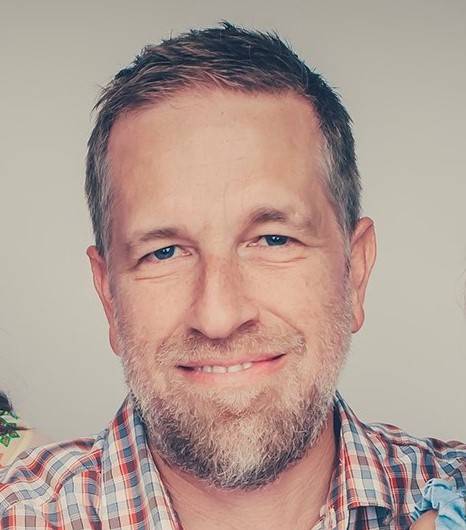Emma Carberry | April 27, 2021

Forensic anthropologist Jason Wiersema (B.A. ‘97) is driven by opportunities to tell the stories of those who can no longer speak for themselves.
His career has taken him to the scenes of national tragedies like 9/11 and Hurricane Katrina, and mass fatalities around the world. And it all started, he says, when he met David Glassman at Texas State University.
Glassman, now president of Eastern Illinois University, was a faculty member, association dean, and chair of the Department of Anthropology at Texas State from 1985 to 2004. When Wiersema first toured the campus, his interest was in archaeology, but he was instantly hooked on anthropology when he heard Glassman, a board-certified anthropologist, talk about his casework.
Wiersema remembers Glassman fostering a feeling of family and community that continues to be a staple of the Bobcat experience. At the time, there were approximately 50 board-certified anthropologists nationwide and Texas State gave him the opportunity to be closely mentored by one of them, an experience that he does not think he would have gotten elsewhere. The supportive community the university creates, says Wiersema, “allows people to get involved in whatever it is they’re interested in.” For him, that was forensic anthropology.
As a forensic anthropologist, Wiersema applies his knowledge of bone biology, anatomy, and physiology to questions of legal interest. After graduating from Texas State, he earned a master’s degree from California State University, Chico and a doctorate from Texas A&M University. Today, he is the director of forensic anthropology and emergency management at the Harris County Institute of Forensic Sciences in Houston, where he works alongside medical examiners to answer specific forensic questions about bone.
Wiersema and his colleagues formed the Texas Mass Fatality Operations Response Team (TMORT), which provides statewide, 24/7 assistance to local jurisdictions within the state that become overwhelmed after mass fatality incidents. TMORT was deployed to provide assistance to the Medical Examiner’s Office in El Paso following the 2019 Walmart shooting. His early experience with mass fatality response included the excavation of mass graves in Bosnia, and participation in the identification of victims of the terrorist attack of September 11, 2001, an effort which continues today, almost 20 years later. He is now a member of the Forensic Sciences Standards Board, the governing entity of the Organization of Scientific Area Committees, the federal agency tasked with developing standards of practice for the forensic sciences.
In addition to mass fatality response and planning, Wiersema’s daily work includes researching child abuse trauma. Unfortunately, he says, this field of study was born of the increasing questions asked of his team about infant injuries. His federally funded research fills gaps in the under-explored area and informs arguments he and other anthropologists make in court. Conducting research that allows him to give meaningful, impactful testimony is the most fulfilling part of an otherwise high-stress job, says Wiersema.
As the field of forensic anthropology grows, so does the prestige of Texas State’s anthropology program. When Wiersema was a student, the program was run out of one classroom on the third floor of the Evans Liberal Arts building. Today, students benefit from the multifaceted, state-of-the-art Forensic Anthropology Center at Texas State. Wiersema specifically praised Dr. Kate Spradley as “ridiculously productive,” and noted that the Texas State forensic anthropology faculty bridge the gap between academics and practitioners as well as any university in the country.
Wiersema stays connected to the university, returning to give guest lectures and serve on dissertation committees. When he visits campus, he enjoys the sight of graduate students working alongside faculty. It’s incredible, he says, to see students still getting the uniquely personal experience he had, even as the program has grown.
When Wiersema decided to pursue anthropology at Texas State, the university was not known for forensics, but his relationship with Glassman allowed him to find and explore that interest. He hopes current and future Texas State students learn from his experience that finding the right person in the right place opens the door to becoming anything they aspire to be.
Share this article
For more information, contact University Communications:Jayme Blaschke, 512-245-2555 Sandy Pantlik, 512-245-2922 |
